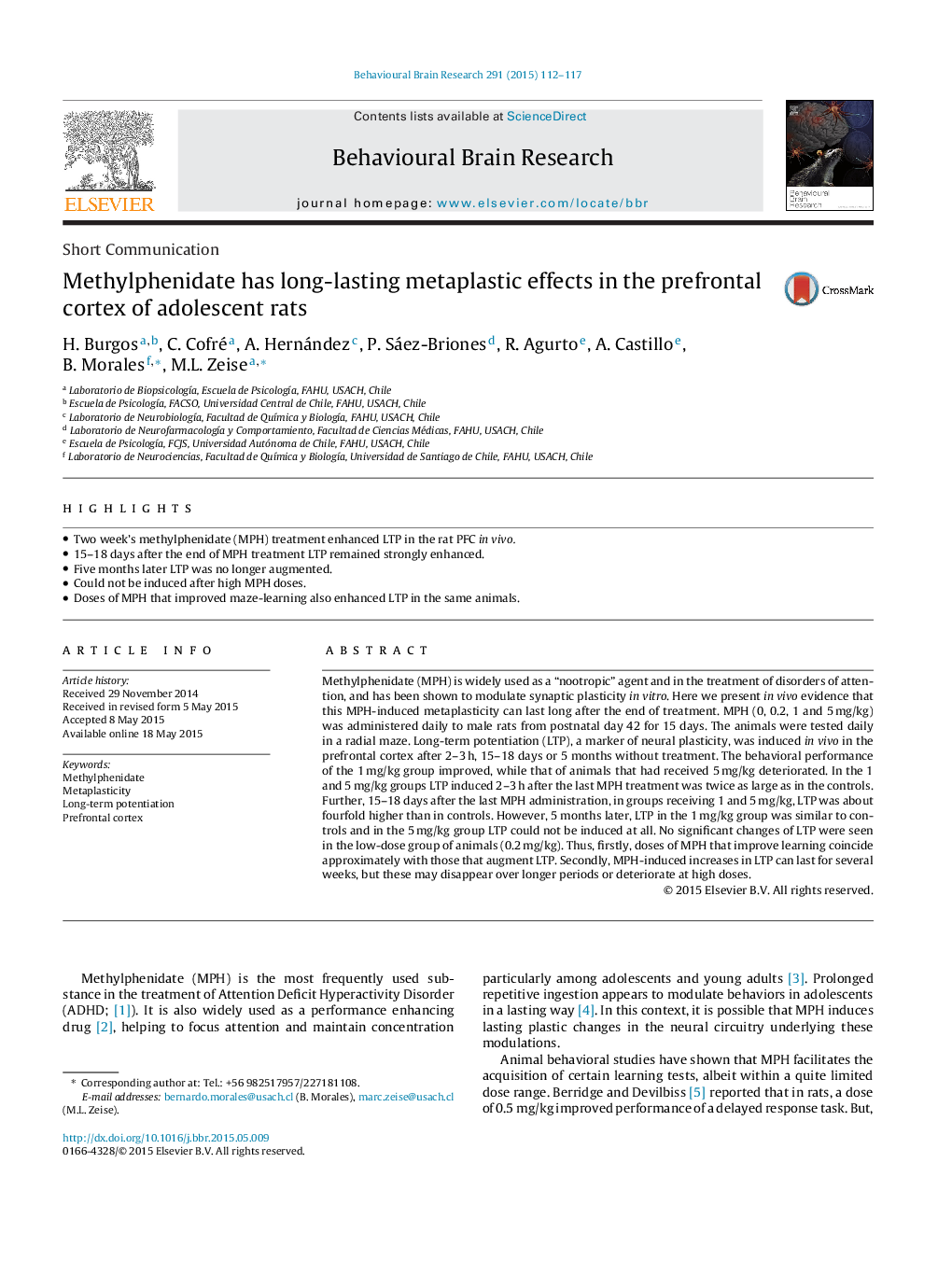| Article ID | Journal | Published Year | Pages | File Type |
|---|---|---|---|---|
| 4312414 | Behavioural Brain Research | 2015 | 6 Pages |
•Two week's methylphenidate (MPH) treatment enhanced LTP in the rat PFC in vivo.•15–18 days after the end of MPH treatment LTP remained strongly enhanced.•Five months later LTP was no longer augmented.•Could not be induced after high MPH doses.•Doses of MPH that improved maze-learning also enhanced LTP in the same animals.
Methylphenidate (MPH) is widely used as a “nootropic” agent and in the treatment of disorders of attention, and has been shown to modulate synaptic plasticity in vitro. Here we present in vivo evidence that this MPH-induced metaplasticity can last long after the end of treatment. MPH (0, 0.2, 1 and 5 mg/kg) was administered daily to male rats from postnatal day 42 for 15 days. The animals were tested daily in a radial maze. Long-term potentiation (LTP), a marker of neural plasticity, was induced in vivo in the prefrontal cortex after 2–3 h, 15–18 days or 5 months without treatment. The behavioral performance of the 1 mg/kg group improved, while that of animals that had received 5 mg/kg deteriorated. In the 1 and 5 mg/kg groups LTP induced 2–3 h after the last MPH treatment was twice as large as in the controls. Further, 15–18 days after the last MPH administration, in groups receiving 1 and 5 mg/kg, LTP was about fourfold higher than in controls. However, 5 months later, LTP in the 1 mg/kg group was similar to controls and in the 5 mg/kg group LTP could not be induced at all. No significant changes of LTP were seen in the low-dose group of animals (0.2 mg/kg). Thus, firstly, doses of MPH that improve learning coincide approximately with those that augment LTP. Secondly, MPH-induced increases in LTP can last for several weeks, but these may disappear over longer periods or deteriorate at high doses.
